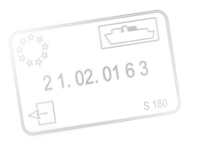by Phillip Peng
"I knew that coming to the U.S. would make my life much different than it would be in Shanghai.”
Cai Lin McCarthay first came to the United States of America in 1990; she was just twenty years old then. Now she is a stay at home mom, with a baby girl, living in a quiet neighborhood, with the rest of her family. She grew up with both of her parents and her younger sister in Shanghai. Her mother's family had left mainland China for Taiwan earlier on to escape communist rule and later move to the United States. Her parents brought their family to the United States to reunite with her mother's family. There she had to learn how to speak English, how to fit in, deal with long working hours, and face discrimination.
Shanghai was like New York City. It was a coastal city, crowded, well-off economically, and the people there were deeply influenced by western culture. I spoke Shanghainese, and Mandarin, and I had been educated in English during middle school. Communities there were very different, unlike the U.S. where people did not know the people that lived right by them, everyone in a community in Shanghai would know one another. Our cuisine consisted of sweet flavored food, foods I truly miss. The people there had been exposed to American culture and therefore dressed in westernized styles though people still dressed in chipaos and such. My mother's family lived in the United States, so we had applied to go there and since I was not twenty-one yet at the time I was required to travel with my parents. We came to the U.S. on a plane so we had no troubles getting here. I didn't think too much about coming to the U.S. but of course I had been nervous because it was a new place, and we also had no savings to support ourselves. Back in Shanghai we had applied for immigration and had waited for about eight years, and when my parents knew we could go they kept it hidden from us because they didn't want us to just stop going to school. I knew that coming to the U.S. would make my life much different than what it would be like in Shanghai. For example, in the United States people had more freedom when choosing what they wanted to major in or what job they wanted. Back in China the government controlled everything, your job was chosen for you, your schools were all picked out, jobs required certificates that were city specific, limiting job applying.
Once I got to the United States, the first things that I knew I had to do were to get a job, and improve my English speaking. I worked seven days a week, at my main job I worked at a fast food restaurant and made $4.75 and hour and I had a side job at a bakery where I made $6.15 and hour. I didn't really have expectations so my mood wasn't dampened by long work hours.
I faced many challenges while I was adjusting to life in the United States. The first was the language barrier I had to overcome, I had learned English before but it was more of a British English and I hadn't really learned how to make sentences, just what the words meant. At first all I ate was Chinese food but slowly I began to add American dishes to my palate. When we came to America we only had Chinese style clothes, I thought that they had the wrong color compared to what the other people wore, the fabrics also shrunk when we washed them, so we gave them away. I also had to study harder over here because I knew I had to in order to get a good job, back in China the job was given to you so you didn't have to compete with everyone based on grades. The teachers here got me to ask how come and why, they got my brains really ticking. I didn't have to much free time because I had to balance two jobs and school, but when I did I read books, went camping or hiking, not different at all from back in Shanghai.
Learning the English language was tough because I had to learn grammar rules and the meanings of sentences. My parents didn't speak English, but it didn't hinder communication at all because I am bilingual. My child will speak Mandarin and English. Living in the United States; however, has sometimes made me feel like I didn't learn English well enough and that I would possibly forget how to speak Chinese. While I lived in the U.S. I did have many encounters with discrimination. The manager of the bakery, who was Hongkongnese I worked in would tell me to clean tables while I was with a customer and after I would go clean the table she would tell me that I had a customer and shouldn't keep them waiting, she also changed around my schedule without telling me. Another time was when some of my friends and I were eating at a Denny's, we were just eating when my friend would feel something being thrown at him. It was a drunk Caucasian man, he had been throwing potato skins, he came over and started pushing my friend and calling names. The manager had then tried to stop a fight from breaking out but only told us to leave when we didn't even do anything. More currently when I was working, one of my co-workers had asked my when I would get my green card, and then later asked me if my husband was rich, and when I told the person no, he had asked me why I married Mark then. While these events did leave a bad taste, they didn't stop me from moving on.
I think that being an American means being a citizen of the United States, paying taxes, voting during elections, and thinking of America as your home. I feel I am mixed both American and Chinese, but I think people cannot change their culture to fit in but only modify it. I do believe that a person could be an American but still retain his or her native culture. On issues with immigration I believe that we should keep open doors for more immigrants, because that leads to America to have more power, but I think the country should have some restrictions too, otherwise the government would lose control. My last thought that I want to share is that even though it may seem hard to immigrate to a new country if you persevere it will all come together in the end.










